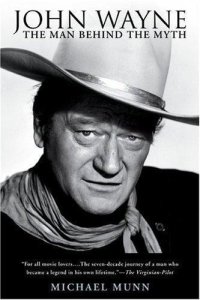
From Publishers Weekly
According to this congenial biography by film journalist Munn, movie legend Wayne (19071979) was a hard worker who held tight to his beliefs and what he thought he should show on screen. Wayne's career did have its share of controversy (although he starred in cutthroat war films, Wayne didn't sign up for military service in WWII; he rejected communism, which made him the object of Stalinist threats; and the actor's given name is still debated), and Munn deftly addresses those hullabaloos while providing an overview of the actor's accomplishments. After playing football at USC, Wayne worked as a studio prop man, coming into early contact with director John Ford, who would direct Wayne in some of his most memorable performances, including 1952's The Quiet Man. Throughout their association, Ford treated Wayne erratically, disparaging his talents and lashing out at him for accepting a lead role from rival director Raoul Walsh (The Big Trail, 1930). Yet Ford and Wayne collaborated on 1939's Stagecoach, which gave birth to the serious western and the Ford-Wayne movie subgenre. Other highlights include Wayne's emergence as a heavy in 1948's Red River and his ferocious performance in 1956's The Searchers. Munn portrays the actor in his personal life as a man's man, who sustained friendships with tough cohorts like stuntman Yakima Canutt but failed in romance. Although the book takes an odd turn toward the end, when Munn links Wayne's patriotism and heroic persona to the heroic actions after September 11, overall, it's a fine tribute.
Copyright Reed Business Information, a division of Reed Elsevier Inc. All rights reserved.
Review
"A fine tribute."
-- Publishers Weekly (_Publisher's Weekly_ )